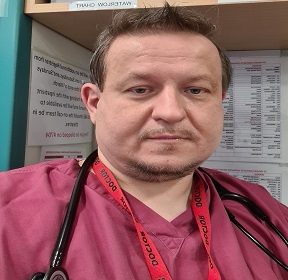Speakers
Sanjay Agrawal
Leading PHARMA CONSULTANT and INVENTOR IndiaTitle: PROBIOTIC and COVID-19
Biography:
Sanjay Agrawal is a leading Independent Researcher, Pharmaceutical consultant and patent holder of more than 40 formulations.. He has actively worked in pharmaceutical and related industries for more than 35 years and started his firm Pharmaceutical Consultants and Inventor in 2005. Skilled in formulation development of Solid orals, liquids, multi-particulars, neutraceuticals and food products. Developed and commercialized novel, adaptable and patentable platform technologies for various dosage forms. Dr. Agrawal completed his post graduation in Biochemistry, Post Graduate Diploma in Yoga and Naturopathy from Global institute of Health & Management-Delhi, MBA in marketing from IMT.
He is Editor-in-Chief of renowned IJM Today and honorable member of the editorial board of The Antiseptic and QualPharma Magazine. He has published more than 100 papers in reputed national and international Publications. Dr Agrawal is meticulous, a keen observer and ultimate performer. Dr Sanjay Agrawal is also the illustrious member of the National Geographic Society and ex-member of scientific committee of IDMA. Dr Agrawal had received various awards for his valuable support and contributions in Healthcare and pharmaceutical sector. He has worked with many International and national Pharmaceuticals company at various positions.
Dr Agrawal is founder of Pharmaceutical Consultants and Inventor. The firm works with diverse base of companies across the globe. It support Food, Pharma and Neutraceutical industries by consulting in Regulatory work, providing unique molecules and helping firms in creating brand image. Dr Agrawal is associated with many colleges and institution and believes initiative in bridging the gap between academics and industry.
Dennis Adjepong
California Institute of Behavioral Neurosciences & Psychology USATitle: MR-Guided Radiation Therapy: Clinical Applications &Experiences
Abstract:
Magnetic Resonance (guided) Radiotherapy (MRgRT) is considered a suitable and versatile imaging modality that enhances direct visualization for tumors that surround the wounds among other organs at risk. MRgRT has marked the beginning of a new era, with its ability to provide real-time imaging that tracks and characterizes each anatomical motion. Initially, the technology was challenging,with the next-generation hybrid MR systems still having limited applicability to clinical practice. Adaptive radiotherapy is also an adequate procedure, given the monitoring variations targeting the neighboring structures to enhance uniformity of the treatment procedures. This is sufficient since a single plan may be inaccurate in exploring the wound’s exposure. MRI is also adequate as it provides soft tissue superior in image contrasts as compared to the standard X-ray technologies without exposure to radiation.
Biography:
Dennis Adjepong, MD. MBA is a surgeon intern at Alexandria Surgery Associates in Alexandria, VA. He graduated from Poznan University of Medical Science, Poland. His thirst for research is in the field of Neurosurgery/ Neuroscience. Dennis received his Master’s in Business Administration from Strayer University, Washington DC. He is a member of the International. Behavioral Neuroscience Society (IBNS) and American Association for the Advancement of Science (AAAS). He is a published author with 15+ publications. He is an Editorial Board Member for Herald Scholarly Open Access Journal of Surgery: Current Trends & Innovations in Washington DC. Lastly, he has strong background in Computer science and Computer Network Security.
Chavi Tejpal
California Institute of Behavioral Neurosciences and Psychology, Fairfield CanadaTitle: Is Metformin the Answer for Distressed Females with Menstrual Irregularities?
Abstract:
Major adverse cardiovascular events (MACE) remain the major cause of mortality and morbidity in patients with STEMI (ST-elevation myocardial infarction). The current literature is aimed to analyze the occurrence of MACE following STEMI irrespective of treatment provided, and follow up after the first diagnosis of STEMI. A PubMed search for Studies of STEMI identified 24,244 articles. After applying our inclusion/exclusion criteria, we found out 75 articles of relevance wherein MACE and its components were considered to be the primary endpoint. These 75 articles included eight Cohort Studies, 13 clinical trials including five randomized controlled trials (RCT), one case-control Study, one cross-sectional study, one review article, and 51 other observational studies. Our analysis shows that MACE remains one of the strongest adverse outcomes among STEMI patients. The current literature review found out the incidence of MACE was 4.2 % to 51% irrespective of the mode of treatment, and follow-ups lasting up to 10 years from the time of STEMI diagnosis.
Biography:
Chavi Tejpal has completed her MD degree from Windsor University School of Medicine in St. Kitts & Nevis.
Sanjeev Choubey
Consultant ,Suntec International Medical center chinaTitle: Interpretation of Troponin in Emergency Department
Abstract:
Patients who present with chest pain in emergency department (ED) need thorough evaluation and accurate diagnosis for proper management. There are myriad of disorders that cause chest pain. Only 20–25% of the patients presenting with chest pain suffer from acute coronary syndrome (ACS). Cardiac troponins (cTns) are frequently assessed in these patients as they are the most specific and sensitive markers for the diagnosis and prognosis of ACS. These are organ-specific, not disease-specific markers. There is a role of cTn testing in diagnosis of myocardial infarction (MI) but negative troponin does not rule out other form of ACS, i.e. unstable angina. Apart from ACS there are many other causes of elevation of cTn. Hence cTn elevation should always be interpreted in the context of clinical presentation. Since the time of its first introduction, there has been tremendous improvement in the sensitivity and analytical performance, so much so, that cTn can be detected in healthy population.
Jaroslaw Nowacki
Epsom and St Helier NHS Trust United KingdomTitle: Wunderlich Syndrome - A Rare Cause of Hypovolemic Shock
Abstract:
Retroperitoneal haemorrhage (Wunderlich syndrome) is a rare cause of hypovolemic shock in emergency patients; however, it is associated with a high morbidity and presents a diagnostic challenge in the Emergency Department. It is more common in female patients older than 50 years, and one of the leading causes is a benign renal tumour angiomyolipoma (AML). Angiomyolipoma predominantly affects only one kidney. Bilateral AML is strongly associated with a rare autoimmune disorder-tuberous sclerosis and occur in 80% of cases of TS. Symptoms caused by growing renal AML are absent to mild and non-specific (intermittent loin, lower back pains, haematuria). Rupture with retroperitoneal bleeding is a frequent complication of AML and occurs in 20% of all cases. Initial presentation of retroperitoneal haemorrhage is remarkably similar to a ruptured abdominal aortic aneurysm (AAA). Most of the cases remain clinically silent during the growth phase and present to the hospital with a complication in the form of retroperitoneal bleeding. Risk of bleeding increases with the size of the tumor and AML bigger than 4cm are treated with selective embolization if found on routine scanning. Many cases of AML are diagnosed when a patient is being scanned for other medical problems. Even in an emergency when AML ruptures is still possible to treat it either with selective embolization or selective nephrectomy, and the majority of patients are making a successful recovery. Keywords: Wunderlich Syndrome (Retroperitoneal Haemorrhage); Renal Angiomyolipoma (AML); Loin Pain with Haematuria; Hypovolemic Shock; Selective Embolization
Biography:
Urgent Care Centre, Queen Mary’s Hospital Sidcup, Hurley Medical Group
AliciaWu Mingshu
Guangzhou Medical Cancer Centre ChinaTitle: New health care facility commissioning and readiness to go live
Abstract:
Healthcare commissioning process should be safety and quality-oriented activities which validate and document the performance of not only facility but system as well, during the process commissioning team will verify to see if the original or defined objective and criteria are met. Understand the content, definition of commissioning that will take place. Clearly describe the timeline activities of commissioning processes 3. Evaluate the readiness before opening especially need to undertake risk assessment and the identification of potential hazards and the required strategies to eliminate or protect against these hazards during commissioning. Ingrained safety culture in everything we do during commissioning is crucial, therefor after identifying a group of commissioning team members we aligned the definition of hospital commissioning which is facility commissioning and clinical operations commissioning. project projective and identified seven medical flows, we also use simulation for activation during commissioning processes. Input should be also provided from all vertical team like radiology, inpatient, general surgery ect. As well as horizontal team like pharmacy, patient access, finance ect. It is also important to deliberately test emergency response at the same time, in our case, there are 5 major risks are identified and emergency response are also planned and tested making sure contingency plans are in place in case of potential disruptions. The goal is to make sure staff are really focus on safety and keep that mindset throughout the code response process. Commissioning checklist is a useful tool to be put into use throughout the whole processes making sure all aspects are covered, we also developed a simulation evaluation tool to identify gaps and potential improve opportunities. After diagnosing the problems and creating solutions we simulate the suggested solutions as well to choose the most effective and efficient solution which is used to create relevant policies and procedures that reflect the changes we made.
Biography:
Wu Mingshu/Alicia who works as a senior quality & safety and patient experience director in Guangzhou Concord Cancer Centre in China. She has rich experience in greenfield hospital setting ups and quality & safety management. She successfully led JCI & TUV accreditation for a high-end private women & children’s hospital in 2017.






